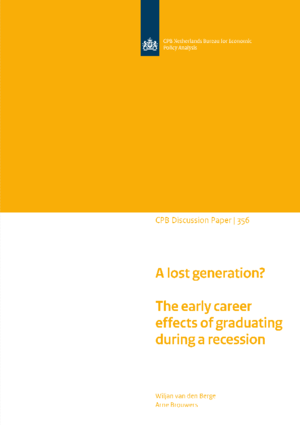July 6, 2017
A lost generation? The early career effects of graduating during a recession
We estimate the effect of graduating during a recession on the early careers of high educated graduates in the Netherlands between 1996 and 2012. Exploiting
field-specifi
c differences in un-employment rates, we fi
nd that graduates on average suffer a 2.3% lower wage in a typical recession in their
first year. The wage loss fades out four years after graduation. Employment probabilities are hardly affected.
We fi nd that women suffer larger wage losses than men. Poor entry conditions are associated with an increased probability of employment at lower quality employers. The primary mechanism through which graduates catch up to their luckier counterparts is mobility across jobs and sectors to better paying employers. We show that those who graduate during a recession are more likely to switch jobs earlier, and less likely to switch jobs later in their career. This suggests an intertemporal shift in job-search effort. While both men and women who graduate during a recession are more likely to switch employers in the short-run, the average returns to successful job search are much higher for men than for women.
Downloads
Authors

Arne Brouwers
